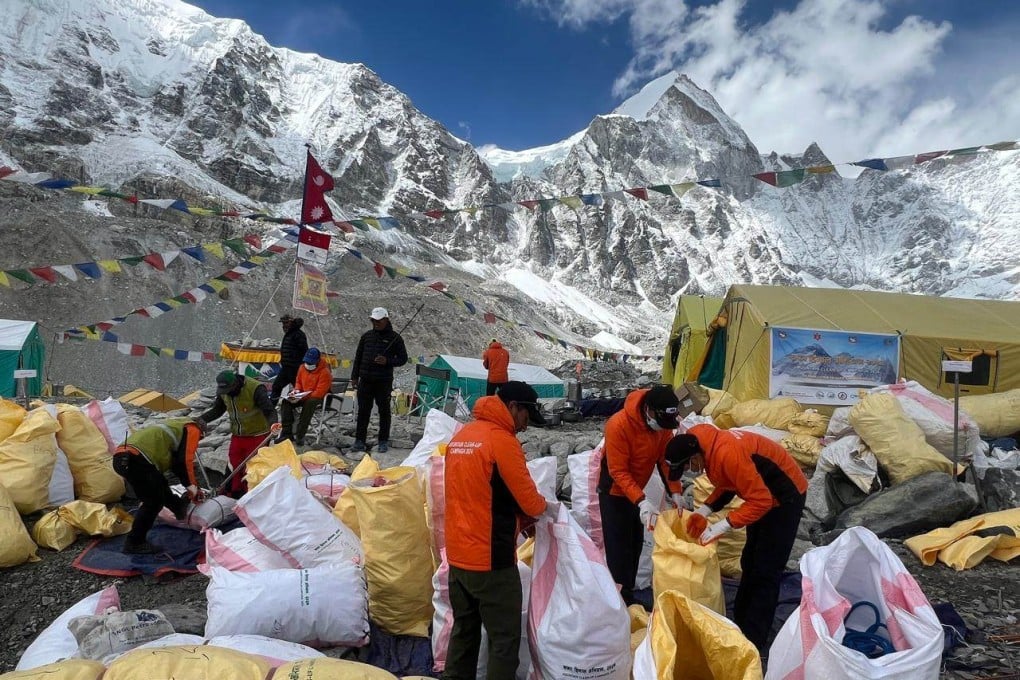Advertisement
Everest is a dirty, trash-strewn mess. Is it too late for Nepal to fix it?
- Thousands of tonnes of waste have been left on the world’s highest mountain over the years – and more keeps piling up, despite clean-up efforts
- Nepal’s Supreme Court has ordered the government to limit climber numbers on Everest. Some activists say a climbing ban is a better idea
Reading Time:5 minutes
Why you can trust SCMP
1

Days before reaching the summit of Mount Everest last May, Nepali mountaineer Tenzi Sherpa captured a video – not showing the striking views of the snow-capped Himalayas, but the vast heaps of garbage left behind by climbers.
The footage from Camp 4, located around 8,000 metres above sea level and known as the “death zone” due to its unforgiving conditions, showed discarded tents, oxygen cylinders and utensils frozen in time.
“[It’s the] dirtiest camp I have ever seen,” Sherpa wrote on Instagram alongside his viral video. “I feel so sad every time … expedition groups and companies cut their company logos and leave all the tents.”
Since Tenzing Norgay Sherpa and Edmund Hillary first climbed Everest in 1953, more than 6,000 people have ascended the mountain, with more attempting in recent years. The crowds have led to “human traffic jams” and increasing amounts of waste, including dead bodies, with many calling Everest “the world’s highest garbage dump”.
It’s unclear just how much rubbish had been dumped on Nepal’s mountains, though those working in the sector estimate it to be in the thousands of tonnes. In 2019, the Nepal government and local non-profit organisations started the Clean Mountain Campaign, which has collected more than 10 tonnes – or 10,000kg – of garbage from the Everest region.
But some working with the clean-up campaign say the rising number of expeditions will just lead to more waste. This year, authorities issued 414 climbing permits for Everest, fewer than the record 454 permits last year, which was also one of the deadliest mountaineering seasons with 17 deaths.

Advertisement